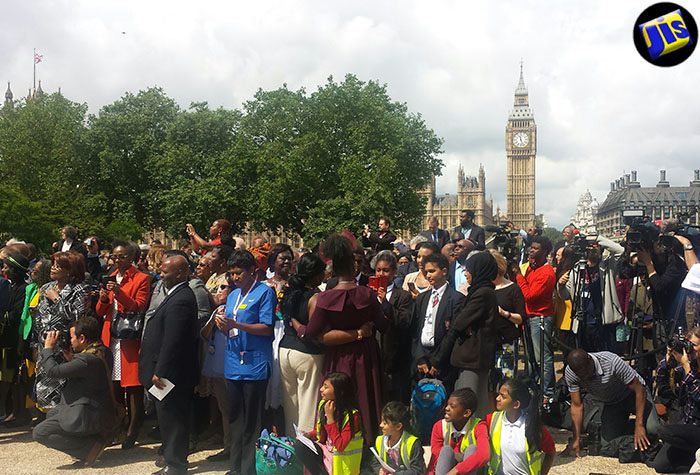Mary Seacole Statue Unveiled in London
By: , July 4, 2016The Key Point:
The Facts
- Mary Seacole cared for wounded British soldiers during the Crimean War from 1853 to 1856. She was born in Kingston in 1805 and died in London in 1881.
- It is inscribed with words written in 1857 by The Times' Crimean War correspondent, Sir William Howard Russell: "I trust that England will not forget one who nursed her sick, who sought out her wounded to aid and succour them, and who performed the last offices for some of her illustrious dead."
The Full Story
A memorial statue for Jamaican-born Mary Seacole, believed to be the United Kingdom’s (UK) first in honour of a named black woman, was unveiled in London on June 30.
Mary Seacole cared for wounded British soldiers during the Crimean War from 1853 to 1856. She was born in Kingston in 1805 and died in London in 1881.
The unveiling of the memorial follows a 12-year campaign, which raised £500,000 for the erection of the structure.
Jamaica’s Acting High Commissioner to the UK, Diedre Mills, who was among the speakers at the unveiling held in the gardens of the St. Thomas Hospital, said Mary Seacole left an indelible mark on society and will continue to inspire generations to come.
Mrs. Mills said that Jamaicans are proud that Mary Seacole is taking pride of place in London.
“I stand before you with a great sense of pride, not the least because I am a woman, not the least because I am Jamaican but more importantly, because I am a human being, who has been touched like you by the life of Mary Seacole.
“If nothing else, the legacy that she has bequeathed to us speaks to the continued and undying support that we should give to each other. Support that simply responds to needs once they are recognised; support that speaks to an even deeper commitment and passion that we need to take care of each other,” she said.
Mrs. Mills also commended the work of the Mary Seacole Memorial Statue Appeal and all those who supported the campaign, as well as the Mary Seacole Memorial Association, which continues to keep her legacy alive.
Chair of the Mary Seacole Memorial Statue Appeal, Lord Clive Soley, said that after 12 years of campaigning, Mary Seacole was finally receiving the acknowledgement she deserves for her selfless support of British soldiers.
More than 300 guests attended the unveiling celebration.
Chairman of the Guy’s and St. Thomas’ National Health Service (NHS) Foundation Trust, Sir Hugh Taylor, said he is “delighted” that St. Thomas is hosting the statue.
He said it is a fitting tribute to a woman who was a pioneer for the generations of nurses and other staff from black and minority ethnic backgrounds, who have served the NHS so well over the years.
Actress and Broadcaster Baroness Benjamin unveiled the statue, which was created by sculptor Martin Jennings and stands opposite the Houses of Parliament.
It is inscribed with words written in 1857 by The Times’ Crimean War correspondent, Sir William Howard Russell: “I trust that England will not forget one who nursed her sick, who sought out her wounded to aid and succour them, and who performed the last offices for some of her illustrious dead.”
In November, Chancellor George Osborne announced the Treasury would contribute £240,000 to help pay for the installation.





